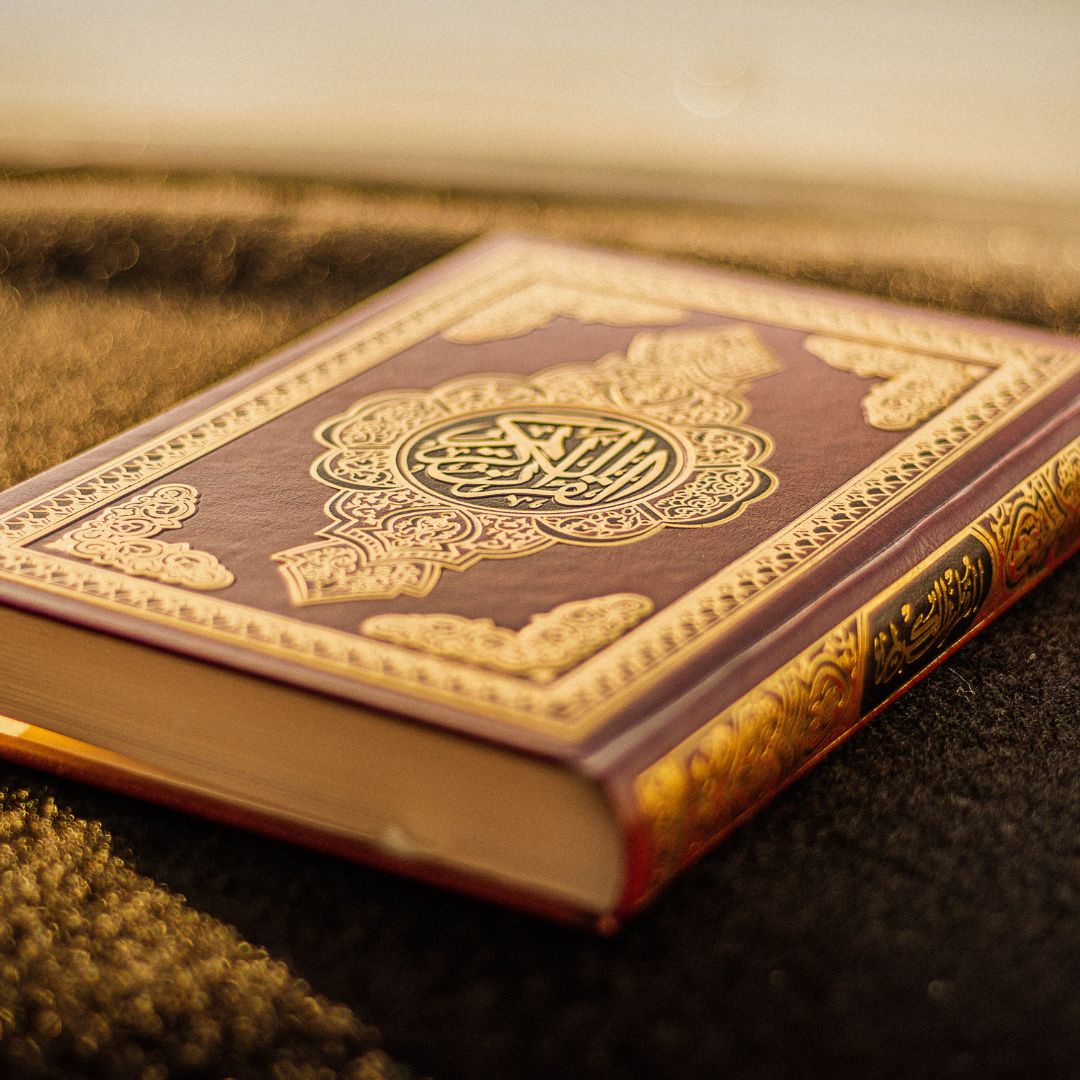Blog
Umrah in Light of the Quran: A Sacred Journey Explained

There is no denying that the sacred journey of Umrah promises the ultimate opportunity for faith revival for Muslims. If you want to purify your soul, performing an Umrah might be the best way. This profound spiritual experience removes all your sins and promises a strengthened relationship with the Almighty. You will yearn to perform this pilgrimage even more once you learn about Umrah in light of the Quran.
Do you want to stand beside the Holy Kaaba and pour your heart out soon? You can plan a pilgrimage soon. But before you embark on this spiritual retreat or book Umrah 2025 packages you must know the significance and benefits of this highly rewarding act of worship in the light of the Holy Quran.
Pilgrimage in Islam: The Quranic View
As Muslims, we already know that our beloved Prophet (SAW) had to undergo many struggles to make this pilgrimage possible for his followers. This alone is enough to tell us about the exceptional significance of this act of worship. But still there are some verses from the Quran and authentic Hadiths that you must know to understand the importance of Umrah.
The Quran outlines the obligation of Hajj, but no evidence in the Quran or Hadith shows the obligation of Umrah. This is why Umrah is considered a minor and voluntary pilgrimage and is not obligatory. Let’s take a look at the translation of the verse below.
“And complete the Hajj and Umrah for Allah. But if you are prevented, then [offer] what can be obtained with ease of sacrifice…” (2:196)
This shows that Umrah is recommended to Muslims and promises exceptional rewards. This verse and other evidence from the Holy Quran also show that the rituals of Hajj and Umrah are closely linked to spiritual devotion to the Almighty, who promises immense rewards and blessings for these rituals.
The Quranic View on the Rituals of Umrah
The Holy Quran also authentically explains the significance of Umrah rites. Let’s discuss some of these references to enlighten you before you get the Umrah deals and embark on your spiritual retreat. We will discuss all the rituals of Umrah and see what the Quran says about them.
1. Ihram
The first ritual of Hajj and Umrah, Ihram, is a state of purity. You must thoroughly clean for Ihram and wear two pieces of white unstitched clothing. For men, women must cover themselves adequately with their regular clothes. While in the state of Ihram, you must abide by specific rules. Here is what the Quran says about the rules and restrictions of Ihram.
“O you who have believed, do not violate the rites of Allah or [the sanctity of] the sacred month or the sacrificial animals or the garlands [that mark them] or those coming to the Sacred House seeking bounty from their Lord and [His] approval. But when you come out of Ihram, then [you may] hunt. And do not let the hatred of a people for having obstructed you from Al-Masjid Al-Haram lead you to transgress. And cooperate in righteousness and piety, but do not cooperate in sin and aggression. And fear Allah; indeed, Allah is severe in penalty.” Surah Al-Ma’idah (5:2)
2. Tawaf
The second ritual of Umrah is performing Tawaf. Pilgrims gather around the Holy Kaabah to perform this ritual. It involves making seven rounds around the sacred house of Allah Almighty.
“Indeed, the first House [of worship] established for humanity was that at Bakkah (Mecca) – blessed and a guidance for the worlds. There are clear signs [such as] Ibrahim’s standing place. And whoever enters it shall be safe. And [due] to Allah from the people is a pilgrimage to the House – for whoever can find a way. But whoever disbelieves – then indeed, Allah is free from the need of the worlds.” Surah Al-Imran (3:96-97)
The translation of this verse shows that pilgrimage to the house of Almighty is a beloved act to the Almighty. We can also learn from this verse that the house of Almighty is a source of guidance for humanity.
3.Sa’i
Sa’i is walking between the two sacred hills of Safa and Marwah. It is also an obligatory Hajj and Umrah ritual and the Quran sheds light on its significance. Let’s look at the translation of the Quranic verse below.
“Indeed, as-Safa and al-Marwah are among the symbols of Allah. So whoever makes Hajj to the House or performs Umrah – there is no blame upon him for walking between them. And whoever volunteers is good – then indeed, Allah is appreciative and Knowing.” Surah Al-Baqarah (2:158)
4. Tahallul
The last ritual of Umrah is Tahallul, which is trimming or shaving hair. Men can shave their heads or cut their hair to the same length. Women must trim a few inches of their hair, preferably equal to the length of their fingertips.
Summing Up
Have you contacted an Islamic travel agency and are planning your Umrah this year? If so, you might be curious about the significance of this pilgrimage and its rituals with authentic Quran references. Now that we have explained Umrah in light of the Quran, you might know what the holy book says about this spiritual retreat. So, it is time for you to start planning your Umrah and prepare to yield exceptional rewards and benefits.
Blog
Surah Yaseen – Spiritual Benefits and Rewards in the Light of Islam

Introduction to Surah Yaseen
Surah Yaseen is the 36th chapter of the Holy Qur’an, consisting of 83 verses (Ayat). Known as the “Heart of the Qur’an” (Qalbul Qur’an), Surah Yaseen holds immense spiritual, emotional, and divine significance in the lives of Muslims. It was revealed in Makkah and is categorized as a Makki Surah, emphasizing Tawheed (Oneness of Allah), Resurrection, and Prophethood.
The Prophet Muhammad (ﷺ) is reported to have said:
“Indeed, everything has a heart, and the heart of the Qur’an is Yaseen. Whoever recites it, Allah will write for him the reward of reciting the Qur’an ten times.”
(Tirmidhi: 2887)
1. Surah Yaseen – A Source of Forgiveness
One of the greatest benefits of Surah Yaseen is that it becomes a means of forgiveness for one’s sins. When recited with sincerity and belief in the mercy of Allah (SWT), it can cleanse the heart and lead the reciter towards repentance and spiritual purification.
Hadith Reference:
“Whoever recites Surah Yaseen seeking the pleasure of Allah, his past sins will be forgiven.”
(Ibn Hibban)
2. Ease in Times of Hardship
Surah Yaseen is often recited during difficult times or when facing life challenges. Whether it’s sickness, emotional distress, financial hardship, or loss, Surah Yaseen brings Sakoon (peace) to the heart and reminds the believer of the temporary nature of trials.
Reciting this blessed Surah invokes the help of Allah and brings tranquility to the soul.
3. Protection from Trials of the Grave
According to Islamic tradition, regular recitation of Surah Yaseen can protect a person from the punishment of the grave. It acts as a safeguard and intercessor for the one who recited it often in their lifetime.
4. Intercession on the Day of Judgment
Surah Yaseen will intercede for the person who recited it regularly, just as the Qur’an will intercede for its companion on the Day of Judgment.
“Recite the Qur’an, for on the Day of Resurrection it will come as an intercessor for those who recite it.”
(Sahih Muslim)
Among all chapters, Surah Yaseen has a prominent role in pleading for the salvation of its reciter.
5. Helps in Fulfilling Needs and Wishes
Many scholars have stated that if one recites Surah Yaseen in the early part of the day, their worldly needs are fulfilled by the mercy of Allah. It is a Sunnah practice in many Muslim households to recite this Surah after Fajr or during times of need.
6. Brings Blessings and Mercy in the Home
Consistent recitation of Surah Yaseen in the home brings Barakah (blessing), Rahmah (mercy), and Noor (light). It serves as a spiritual shield, purifying the atmosphere and attracting the presence of angels.
7. Eases the Soul at Time of Death
The Prophet Muhammad (ﷺ) encouraged the recitation of Surah Yaseen for those who are in the last moments of life:
“Recite Yaseen over your dying ones.”
(Abu Dawood: 3121)
It comforts the dying soul, eases the pangs of death, and serves as a spiritual companion in the transition from this world to the next.
How to Benefit from Surah Yaseen Spiritually
To truly benefit from Surah Yaseen:
- Recite it with understanding and sincerity.
- Reflect upon its meanings and verses.
- Act upon the guidance it offers, especially regarding belief in the unseen, Allah’s mercy, and the truth of the Hereafter.
- Make it a daily habit, especially after Fajr or before going to sleep.
Conclusion
Surah Yaseen is more than just a chapter of the Qur’an. It is a divine treasure, filled with mercy, guidance, and healing for the soul. Its virtues are well-established in Islamic tradition, making it a beloved Surah for every practicing Muslim.
Whether you seek forgiveness, relief from problems, or spiritual growth, turn to Surah Yaseen and connect with the powerful words of Allah (SWT).
Frequently Asked Questions about Surah Yaseen
What time is best to recite Surah Yaseen?
The best time is after Fajr or early in the morning. However, it can be read at any time of the day.
Can Surah Yaseen be recited for the deceased?
Yes, it is recommended to recite Surah Yaseen for someone who is dying or has passed away as a form of mercy and comfort.
Is Surah Yaseen a cure for illnesses?
While not a replacement for medical treatment, Surah Yaseen is considered a source of spiritual healing and comfort, especially during times of illness.
Blog
The Hidden Gems in Surah Yaseen: Lessons for Every Muslim

Surah Yaseen, often referred to as the heart of the Quran, holds a special place in the hearts of Muslims worldwide. Its profound themes, captivating narratives, and timeless lessons make it one of the most recited chapters of the Quran. As the 36th Surah, revealed in Mecca, it contains 83 verses that encapsulate core Islamic principles such as monotheism (Tawheed), prophethood (Risalah), and accountability on the Day of Judgment (Yaum Al-Qiyamah). This article explores the hidden gems within Surah Yaseen and uncovers lessons that resonate with every Muslim.
The Significance of Surah Yaseen
Prophet Muhammad (PBUH) referred to Surah Yaseen as “the heart of the Quran,” emphasizing its importance in conveying the essence of Islamic teachings. Its recitation is believed to bring blessings, protection from calamities, and spiritual peace. While some claims about its specific benefits lack direct Quranic or Hadith support, its general rewards and guidance remain undisputed.
Core Themes and Lessons
Surah Yaseen is rich in themes that address fundamental aspects of faith and life. Below are its core teachings:
1. Monotheism (Tawheed)
One of the primary messages of Surah Yaseen is the Oneness of Allah. It reminds believers that Allah alone deserves worship and has no partners. The Surah highlights signs of Allah’s existence through His creation—pairs like night and day, celestial bodies like the sun and moon, and natural phenomena such as the growth of crops. These signs encourage Muslims to reflect on Allah’s power and acknowledge Him as the sole provider.
2. Prophethood (Risalah)
Surah Yaseen affirms the prophethood of Muhammad (PBUH) as a messenger tasked with delivering Allah’s message to humanity. It recounts stories of previous messengers who faced rejection but remained steadfast in their mission. This serves as a reminder for Muslims to remain committed to spreading truth despite challenges.
3. Accountability on the Day of Judgment
The inevitability of Yaum Al-Qiyamah is vividly described in Surah Yaseen. It contrasts the rewards awaiting believers in Paradise with the punishment prepared for disbelievers in Hell. This stark imagery underscores the importance of living a righteous life and preparing for eternal accountability.
4. The Power of Reflection
Surah Yaseen encourages Muslims to ponder over Allah’s creation—the intricate design of the universe serves as evidence of His existence and wisdom. Reflection strengthens faith and inspires gratitude toward Allah.
5. Consequences of Rejecting Truth
The narrative about a tyrant village that rejected Allah’s messengers illustrates the dire consequences of arrogance and disbelief. This story teaches Muslims to embrace humility and heed divine guidance.
Practical Lessons for Daily Life
Surah Yaseen is not just a chapter to recite; it offers actionable lessons for Muslims:
Invite Others to Islam: The Surah emphasizes spreading Allah’s message with sincerity while understanding that guidance ultimately comes from Him.
Avoid Arrogance: It warns against arrogance, which blinds individuals from recognizing truth.
Seek Knowledge: Reflecting on Allah’s creation fosters intellectual growth and spiritual connection.
Prepare for Accountability: Its vivid depiction of Judgment Day serves as motivation to align actions with Islamic values.
Misconceptions About Surah Yaseen
While Surah Yaseen is highly revered, certain misconceptions exist regarding its benefits:
Claims about its efficacy in easing death or enhancing marriage prospects lack authentic Hadith support.
Reciting it at specific times like Fajr or during pregnancy is not explicitly endorsed by Islamic texts.
Instead, Muslims should focus on understanding its meanings and applying its teachings to their lives.
Connecting Spirituality with Pilgrimage
The lessons from Surah Yaseen align closely with the spiritual preparation required for Hajj or Umrah. Pilgrims are encouraged to reflect on Allah’s creation, embrace humility, and prepare for accountability—all themes emphasized in this Surah. For those planning their pilgrimage, resources such as Airlink Hajj and Umrah provide comprehensive guidance to ensure a smooth journey toward spiritual fulfillment.
Conclusion
Surah Yaseen is a treasure trove of wisdom that guides Muslims toward a deeper understanding of faith. Its emphasis on monotheism, prophethood, accountability, reflection, and humility resonates across generations. By internalizing its lessons, Muslims can strengthen their relationship with Allah and navigate life’s challenges with clarity and purpose.
Whether you are reciting it during worship or reflecting on its meanings during quiet moments, Surah Yaseen remains a timeless source of comfort, guidance, and inspiration for every believer.
Blog
How to Build a Spiritual Connection and Divine Love with Your Creator

Divine love, or Ishq-e-Ilahi, is a profound and sacred emotion. When Allah chooses to bless a person with this love, the heart of that individual naturally inclines towards their Creator — without any material reason. Such a person begins to love Allah deeply, believes in Him wholeheartedly, and sincerely follows the path Allah has shown through the Quran and Sunnah.
In the journey of spiritual love, there are moments when human intellect and knowledge reach their limits. At that point, faith takes over. Many individuals throughout history have dedicated their entire lives to the path of Allah, and their stories reflect the depth of their love and connection with the Divine.
Some people achieved such closeness with Allah that they became fana fi Allah — completely immersed in His love. However, it is crucial to understand that true divine love never distances one from Islam; rather, it brings one closer to the true essence of the faith. These individuals not only followed Islam but became beacons of Islamic knowledge and spiritual wisdom.
Many people mistakenly believe that those in divine love have no worldly responsibilities. But Islam is a complete code of life — it guides a person from birth to their final breath. Alongside the rights of Allah (Huquq Allah), Islam also emphasizes the rights of His creation (Huquq-ul-Ibad). Those who loved Allah deeply dedicated their lives not only to worship but also to spreading the message of Islam, reforming society, and protecting the religion.
To walk the path of divine love, one must first align their inner direction — their Qiblah. Regular remembrance of Allah (Dhikr) is essential. Seeking the path to Allah can be best achieved through the recitation and understanding of the Holy Quran. Every Muslim should make an effort to recite the Quran daily. Even if it’s just a single Ruku (section), the words of the Quran bring purification and guidance to the soul.
Another powerful method to build spiritual closeness with Allah is Islamic meditation (Muraqaba). It is a deeply effective practice that can strengthen the bond between a believer and the Divine. Including Surah Yaseen and Surah Rahman in your daily recitation (Wird) is highly beneficial. These chapters of the Quran open spiritual doors, attract countless blessings, and bring the servant closer to their Creator.
Conclusion
Building a spiritual connection and divine love with Allah requires sincerity, daily remembrance, understanding of the Quran, and following the complete path of Islam. When pursued with heart and humility, Allah draws His servant closer and opens the gates of divine nearness and contentment.
-

 Blog6 months ago
Blog6 months agoNazar Ki Dua
-

 Blog6 months ago
Blog6 months agoSurah Muzammil
-

 Blog5 months ago
Blog5 months agoNazar Ki Dua In English Text
-

 Blog6 months ago
Blog6 months agoDarood Tanjeena
-

 Blog4 months ago
Blog4 months agoWhat is the purpose of life?
-

 Blog4 months ago
Blog4 months agoHaunted House Cleaning with Paranormal Activity
-

 Blog4 months ago
Blog4 months agoEvil Eye Protection, Symptoms, Remedies & Removal?
-

 Blog4 months ago
Blog4 months agoSurah Yaseen Read Online


